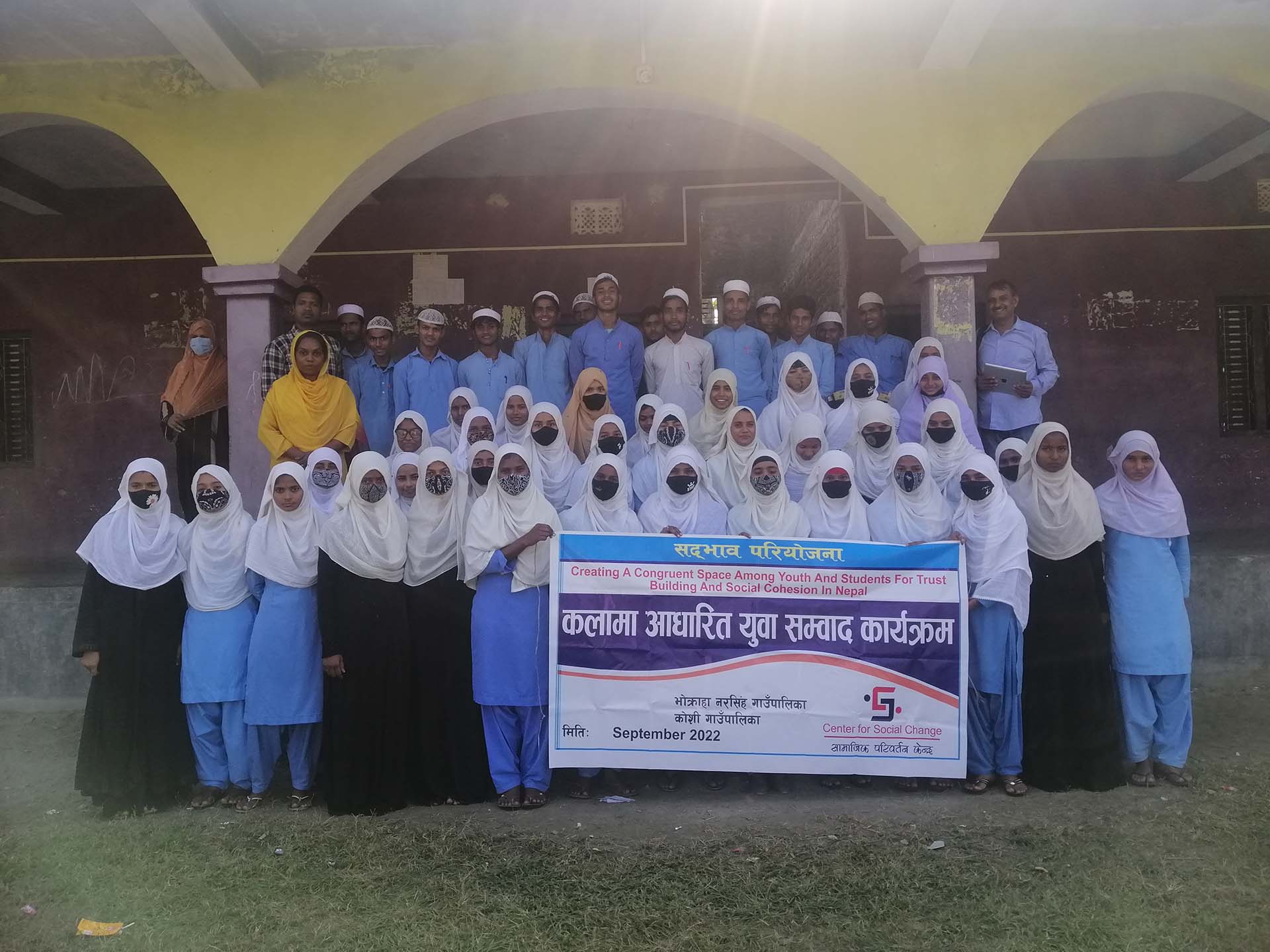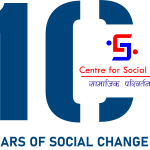
Exploring the dynamics of Dialogue: Sadbhaav Project
Photo by Kaleli Nyaichyai
Author: Yukta Yadav
“Sayau thunga phoolka hami eutai mala Nepali”
Reiterating the sentiments from the above mentioned verse of the national anthem of Nepal which glorifies the unique diversity of population dwelling in Nepal, Centre for Social Change introduced the Sadbhaav project with the aim of creating social cohesion and trustful relationships among youth groups from diverse religious, cultural, ethnic, geographical and political backgrounds. The project is funded by Institut für Auslandsbeziehungen (ifa)’s Zivik Funding Programme with funds of (Federal Foreign Office).
Recent research studies on youth and civic participation has emphasized the necessity of young people as political agents in their own rights, rather than citizens-in-waiting who become true political actors and active citizens only after reaching maturity. Youth (16 to 40 years old) in particular, who represent 40.3% of Nepal’s population, have undermined potentials to be the catalyst in peacebuilding and conflict prevention. Nevertheless, social constructs and perceptions of exclusion, discrimination and social or political marginalization or polarization are still prominent sources of divide among youth groups and distrust towards the government, public institutions, as well as other groups of the society. Hence, powerful dialogues and interactions that build strong sense of communal trust are necessary to bring broader social changes. Therefore, youth are the key actor of the project specifically divided into six categories namely apolitical youth and students, political youth and student leaders, ethnic and indigenous youth leaders, CSO youth leaders, artists and media professionals.
During the initial phase of the project the existing societal conflicts were first identified in the project areas (Bara, Kailali, Sunsari and Rupandehi) through interactions, rigorous study and research. The major learnings from need assessment were the context of the community, existing societal conflicts that further need to be addressed by the project activities, the role of social media and artists in addressing the societal conflicts, achieving trust and social cohesion in the project areas and basic knowledge about the preparation of the educational materials (art based and A/Vs). Consequently, based on the evidences generated from these research, meaningful and artistic creations, interactive workshops and dialogue initiatives were developed and implemented valuing art as the core component.
Along the course of this project, working with the Art Fellows and guiding them through their art work, we have learned that art is a powerful tool in which opportunities are embedded that foster dialogue exchange, collective realization of issues and greater understanding of other’s viewpoints that subsequently helps to build tolerance and harmony within communities. To affirm this statement, the art-based dialogue workshops conducted among target groups in the project areas so far have enabled participants to open up about sensitive topics like dowry, child marriage, religious hate, gender-based discriminations, etc. that are often difficult matters for realization and conversations among youth groups. The A/Vs created by the Multimedia Consultant covered the most pressing issues hindering social cohesion and each delivered positive message suggesting ways to promote trust building and strengthen social cohesion. The team supported the Consultant by incorporating the findings from need assessment into the script of the A/Vs which were used during the workshops organized throughout the span of the project. It was observed that use of A/V in teaching learning process has multifarious value. The workshop facilitators expressed that the use of A/V gave them a chance to make a more professional and consistent presentations.
Also, youth dialogue programs conducted among political leaders have encouraged their active engagement in building strategies to achieve social cohesion and trust building at the local levels which include provisions of different trainings and workshops and interventions to attain youth empowerment that can direct them to collectively mitigate the existing conflicts by conducting strategic and effective dialogues at local levels.
It is essential to state that CSC’s initiatives through project ‘Sadbhaav’ may not be the first of its kind among interventions to create social cohesion and trust among youth groups, rather it is a resourceful and sustainable approach that has allowed participants to hone their critical and analytical skills contributing to their empowerment, to take ownership of their local issues and to carry effective and respectful discourses on tensions, experiences, reflections and perceptions even when they are different from their own.
The graphics, views and opinions expressed in the piece above are solely those of the original author(s) and contributor(s). They do not necessarily represent the views of Centre for Social Change.

Yukta Yadav
Project Officer
Centre for Social Change
©2021 Centre for Social Change, Kathmandu
